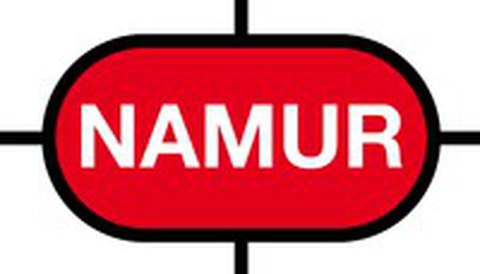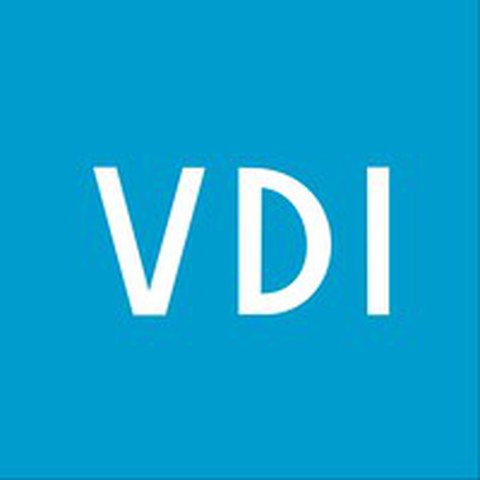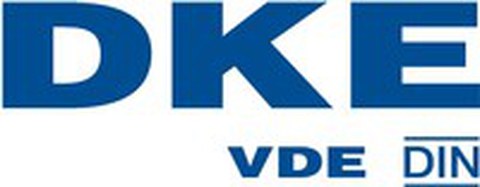Committees
NAMUR
AK 2.8 Automation architectures
As part of its exchange of experience, its concept development, its formulation of requirements for automation solutions and its participation in national and international standardization, the "Automation Architectures" working group deals with the following topics, among others:
- NOA - NAMUR Open Architecture
- Designing open system structures for new and existing systems as the basis for Industry 4.0
- Requirement profiles and concepts for networking automation solutions
- Methodical approaches to the use of distributed network services for automation tasks
- Network integration and interfaces between IT and automation systems, taking into account security and availability requirements
- Market analysis, technology overview and trends for future interfaces, communication methods and system architectures
Link to the working group website
AK 2.4 Manufacturing Execution Systems (MES)
The "Manufacturing Execution Systems (MES)" working group deals with the following topics, among others, as part of its exchange of experience, its concept developments, its formulation of requirements for automation solutions and its participation in national and international standardization:
- Planning processes for the implementation of MES solutions
- Requirements and technical concepts for improving an operational MES infrastructure
- Economic potential of MES solutions
- Optimization of internal logistics and production control
- Creation of suitable organizational structures for the development and operation of MES
Link to the working group website
AK 1.12 - Automation of modular systems
The aim of Namur AK 1.12 is to develop requirements for automation technology in connection with the future modularization of process engineering plants.
Process engineering is increasingly driving approaches to the modularization of plants. Possible solutions for modularized and flexible process engineering systems are being implemented in projects such as "F³ 3-Factory", "CoPIRIDE" and "PILLS". The "50% idea" of the 48th Tutzing Symposium also shows clear approaches to this new type of plant construction.
The integration of production modules into an overall plant requires not only the standardization of process connections for energy and material flows, but also of automation technology. The motivation for the work of the working group lies in the challenge of enabling the realization of the desired benefits through the further development of modular concepts in automation technology.
Link to the working group website
AK 1.3 - Information management and tools
As part of its exchange of experience, its concept developments, its formulation of requirements for automation solutions and its involvement in national and international standardization, the working group deals with the following topics, among others:
- The digital twin in the process industry in relation to instrumentation, electrical engineering and automation
- Replacing document handover with data handover
- Selection of the necessary information models from existing national and international standards to cover the information required for the digital twin
- Checking the information models for compatibility with each other
Link to the working group website
Processnet
Model-based process development and optimization (MPO)
- Process synthesis:
Methods and techniques for the development of optimal processes from the basic process idea to the process flow diagram - Process simulation:
Static and dynamic holistic simulation of processes - Process optimization and process control:
Holistic optimization of processes as well as dynamic process control to ensure optimal and safe operating conditions - CAPE tools and their application
- Information and knowledge processing:
- New approaches and methods of applied computer science and mathematics
Data Exchange for Process Industry (DEXPI)
Due to the lack of interoperability between CAE (and other) systems companies today face high efforts in data exchange while working together to execute projects for planning, construction and operation of process plants. Parties typically exchanging data in such projects are e.g. EP/EPCs, owner-operators, and vendors, but also site services and authorities. One of the main reasons for this high effort is the lack of an agreed understanding across the different systems, e.g. by means of a commonly used standard for data exchange within the process industry. To become more efficient during planning, construction and operation of plants, a data exchange model based on the ISO 15926 standard shall be established.
Objective of the first phase of the initiative is the transfer of a P&ID from one P&ID system to another P&ID system. The data transfer must include graphics, symbols, topology, all engineering attributes, enumerations, select lists etc. to enable seamless continuation of work on the P&ID in the destination system.
Transfer of engineering data over the full life cycle of a plant between different CAE tools e.g. from simulation to basic/detail engineering up to operations and maintenance may be covered in subsequent phases.
- Model-based process development and optimization working group (AA-MPO)
- Temporary working group on modular plants (TAK-ModA)
- Working Committee Digital Technologies in Plant Engineering, Operation and Service
VDI/VDE Measurement and Automation Technology (GMA)
Technical committee 6.11 - Commissioning
Nowadays, simulation is one of the most important tools in the engineering of automated production plants. Both in the manufacturing and assembly industry and increasingly in the process industry, virtual commissioning (VIBN) can be used to test control systems before they are installed in the real plant. The GMA FA 6.11 is developing the necessary boundary conditions, procedures and the necessary tool support for the use of simulation across project phases.
Main areas of work of the technical committee
- Systematic use of simulation across the entire engineering workflow in preparation for the VIBN
- Creation of a glossary as a basis for the targeted use of simulation
- Development of boundary conditions and systematics for the efficient use of VIBN (also in SMEs)
- Transfer of proven methods for reducing complexity (modularization, library concepts, etc.) to the area of VIBN.
Link to the expert committee website
Expert committee 5.16 - Future architectures of automation
Together with NAMUR and the ZVEI, the technical committee "Future architectures in automation" has taken on the task of creating a guideline to define the specification of module interfaces for use in modular systems and to describe them syntactically, semantically and pragmatically.
Modular systems are increasingly being used in manufacturing and process engineering. The aim here is to significantly shorten the planning time for new systems and to reduce the time required for system modifications. This reduces downtime and significantly shortens the time-to-market for new systems. As the domains of "production engineering" and "process engineering" have very different requirements in terms of modularity, the focus is primarily on process engineering. The engineering of the automation technology of modular plants is described, whereby both the module engineering and the plant engineering of the automation technology are considered.
The Module Type Package (MTP), which defines and describes the interfaces and functions of the automation technology of modules and ultimately enables the integration of modules into a process control level (PFE), is used to describe the module types.
Link to the technical committee website
Technical Committee 7.20 - Cyber Physical Systems
Technical focus:
- Analysis of CPS
- Design of CPS
- Application of CPS
- CPS components and their properties
- Examples of CPS in automation
Aims of the work
- Development of an understanding and a statement for cyber-physical systems from the perspective of automation technology
- Mutual exchange of experience
- Mutual information about research activities
Link to the technical committee website
Expert committee 7.22 - Working world Industry 4.0
In addition to technological innovations, the future of Industry 4.0 depends crucially on the development of suitable and innovative business models as well as the consistent creation of working environments and coherent training and further education concepts.
The mutual influence of new technologies, business models and future working environments is one of the major questions that we need to answer in Germany. What forms of work can we expect from Industry 4.0 in the manufacturing and process industries? How much support can automation provide through new types of assistance systems in production to make work easier, integrate people with limited action-taking capacities and support training on new systems? What business models can arise from the extended integration of service into products and what are the smart services of the future? What decision-making support can automation concepts and systems offer those responsible in companies and who will be among the decision-makers in the future? Is a shift of decision-making processes to production-related areas to be expected and who will benefit from this?
The expert committee deals holistically with the integration of Industry 4.0 into our society with the aim of maximizing the benefits for the economy and society. All interest groups are working together to identify and exploit the opportunities of Industry 4.0 with regard to the organization of work for SMEs and global players, for employers and employees.
Link to the expert committee website
German Informatics Society (GI)
Specialist Group for Tangible Interaction (BGI)
Tangible interaction in interactive systems operates at the interface between the physical and the digital like almost no other field of research. For years, researchers, designers, developers and artists in Germany have been working on opening up the field theoretically and empirically, developing technical foundations and prototypes, and exploiting the possibilities of hybrid physical/digital interfaces. The Tangible Interaction specialist group aims to contribute to the further development and promotion of this field of research. The researchers, developers and designers in the specialist group are interested in tangible interaction from various directions and are involved in investigating and disseminating it in applications, research and practice. One aim of the specialist group is to establish the topic as an important field in Germany in research funding institutions and politics as well as in IT application development; it cooperates closely with the MCI department and thematically related working groups and specialist groups of the GI. (Mission statement, be-greifbar.de)
DKE
DKE/UK 921.1 - Terms of control technology
Subcommittee 921.1 deals with the creation of terminology relating to control technology. It thus fulfills an important task in overcoming interoperability problems. Today, the basic terms of a specialist field are described in standards so that no misunderstandings creep into technical discussions. It is also important for the training of the next generation of specialists that clearly defined technical terms are introduced instead of vague concepts.
In the field of electrical engineering, IEC 60050 (International Electrotechnical Vocabulary) is one of the most important standards for defining terms. Section 351 (Control Technology) has now been completed in its fourth version by the committee under the leadership of its chairman Prof. Crämer. The committee is now concentrating on terminology relating to the topic of "industrial IT".




